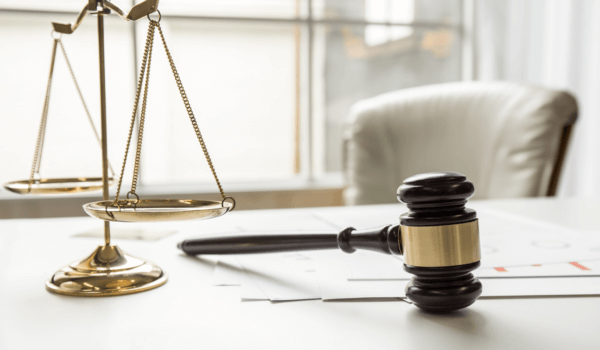
There are times when monetary damages will not be enough to help a plaintiff get what they need in court. In some cases, they simply need the behavior to stop. In those cases, a plaintiff can seek a temporary injunction for injunctive relief. A judge would either order a halt to the behavior in question while they consider a permanent ruling, or they may put an end to the defendant’s actions about which the plaintiff is complaining.
The Main Types of Injunctive Relief in Texas Cases
Here are the five main types of temporary or permanent injunctive relief in Texas:
- Preliminary or temporary injunctions: These can be issued at the outset of a case while the judge is considering the overall situation. If the judge rules in favor of the plaintiff, the injunction may become permanent.
- Temporary restraining orders: These are issued for a set duration of time, usually until the judge can decide whether to grant a temporary injunction.
- Permanent injunctions: A judge will issue this order at the conclusion of a case if the case was resolved in favor of the plaintiff.
- Mandatory injunctions: Instead of ordering a party not to do something, a judge could direct them instead to take a specific action.
- Prohibitory injunctions: The judge may prohibit a party from taking a specific action.
In federal cases, restraining orders and injunctions are governed by Rule 65 of the Federal Rules of Civil Procedure. In Texas cases, Chapter 65 of the Civil Practice and Remedies Code applies to the case. A federal or state court must follow the procedures set forth in the rule or rules applicable to the action before them.
The Factors a Court Considers When Deciding Whether to Grant an Injunction
A judge would likely issue a temporary restraining order while they consider an injunction. There is a high standard a plaintiff must meet to obtain certain types of injunctions. For a preliminary injunction, a judge will consider the following four factors:
- The likelihood of success on the merits. A judge would consider the merits of the larger case in deciding whether to issue an injunction. If the case does not have merit, the judge will not order an injunction. The hearing for a preliminary injunction is often a yardstick by which litigants can measure their ultimate chance of success in the case. The parties can expect the court to give an analysis of the bigger picture.
- The likelihood of irreparable harm. An injunction is an extraordinary measure that is granted to stop imminent harm from occurring before the court can rule on the overall case. To persuade a court to grant an injunction, a plaintiff would need to show that they would suffer greatly in the interim.
- Balance of equities and hardships. An injunction is an equitable measure. A plaintiff must show that the equities of the case are in favor of an injunction. The benefit to a plaintiff must be weighed against the hardship to the defendant, recognizing that an injunction will also impose costs on the defendant.
- Public interest. The plaintiff must show that an injunction is in the public interest. Since this is not specifically defined, it gives a judge a wide degree of latitude in making their decision.
Examples of Injunctions in Texas Cases
Examples of injunctions that a court could issue include:
- Ordering a halt to an alleged infringement upon the intellectual property
- Stopping a former employee from taking a business’ clients
- Preventing a fiduciary from committing further breaches of their duty
- Granting an injunction to stop a nuisance that is impacting the rights of a property owner
- Ordering a party to continue performing its obligations under the terms of a contract
- Stopping a majority shareholder from freezing out a minority shareholder
By the time a litigant files a request for an injunction, they will need to have practically fully developed their case. They cannot get an injunction unless they have a relatively compelling argument in their overall case. If the court grants the request for an injunction, it is often a strong indicator of which direction the judge may be leaning toward in their final ruling. However, just because a plaintiff was granted an injunction does not mean they’ll automatically win the case.
You Must Prepare Early When an Injunction Is Involved
Cases that involve a request for an injunction require a great deal of preparation before you even file a lawsuit in court. Court hearings for an injunction are often held within days after the plaintiff files their initial pleadings in a case. They may file their original petition or complaint along with a request for an injunction. The judge would need to decide immediately whether injunctive relief makes sense based on the strength of the petition or complaint. Therefore, you need an experienced civil litigation attorney on your side to give you the best possible chance of obtaining an injunction. If you are defending yourself or your business against a lawsuit, you should reach out to an attorney immediately if the plaintiff has requested an injunction. The commercial litigation attorneys at Feldman & Feldman will provide you with tough and aggressive legal representation.
